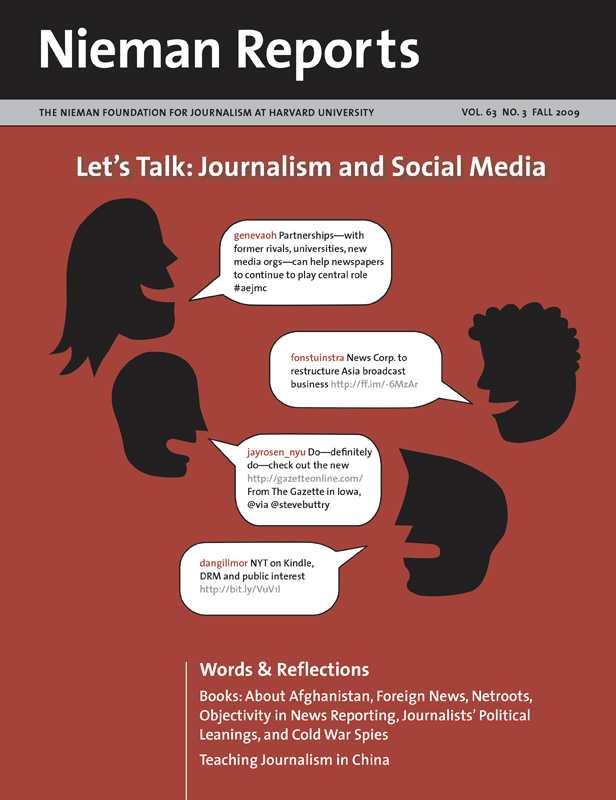ISSUE
Fall 2009

Let's Talk: Journalism and Social Media
From blogs to vlogs, Facebook to MySpace, Twitter to Flickr, Delicious to reddit, words and images bounce around the globe, spreading wide and fast. Journalists are adapting to the ever-shifting terrain carved out of these conversations. In this issue they describe changes in how they work and what they produce, explore emerging ethical issues, and propose principles of active engagement. In Words & Reflections, essays touch on foreign news reporting, Afghanistan, netroots, objectivity, journalists’ political leanings, and Cold War spies.
